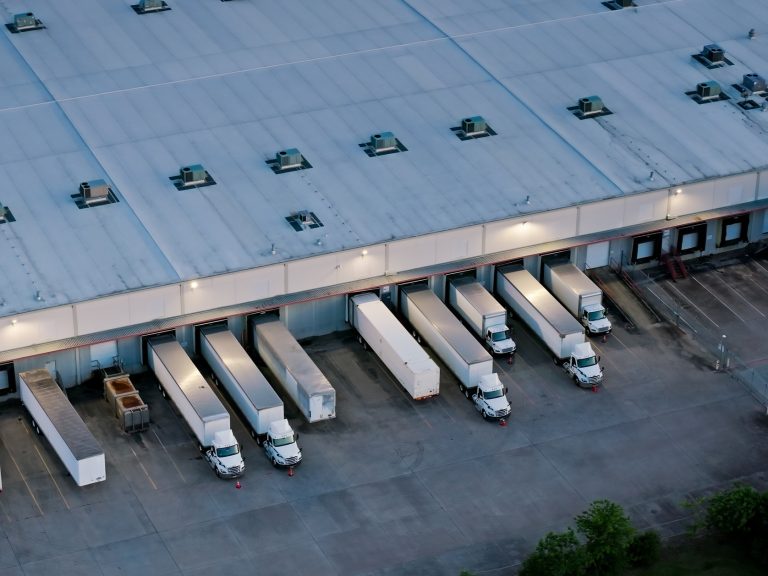Macquarie Group marks Australian return with LOGOS purchase

Macquarie Group has made a major return to the property sector, teaming with Canadian fund manager Ivanhoe Cambridge to buy the LOGOS Property Group, which controls $2 billion worth of logistics real estate funds in Australia and China.
The move comes as Macquarie chief Nicholas Moore fronts investors and analysts amid concerns the conducive conditions that have buoyed the financial services behemoth may be fading and the resources slump could be about to seriously bite.
Moore headlines the group’s annual operational briefing and some analysts believe he will update near-term earnings guidance, along with the usual summation of activity and trends in the final quarter of last year.
Driving deeper: Macquarie grows global reach with Stonehenge stake
Shemara Wikramanayake, the influential boss of Macquarie Asset Management, the group’s largest division by earnings, will also provide an update alongside executives Martin Stanley and Ben Bruck.
After driving the group’s recent acquisition agenda, Corporate and Asset Finance — another of Macquarie’s “annuity” businesses alongside asset management and banking and financial services — will also present to investors. This will include updates from CAF co-heads Ben Brazil and Garry Farrell after the division last year bought the Esanda car finance leasing portfolio from ANZ and the AWAS aircraft leasing fleet.
The annual operational event comes just two months before Macquarie rules off its books for the year to March 31, which is expected to be its best ever, with a profit just north of $2 billion. But after shares surged 41% last year, cooling sentiment and global turmoil, this year has taken its toll.
We see meaningful earnings risk from more modest assets under management growth, energy, resources and commodity exposures, weaker equity market-related activity, lower performance fees; and less gains on sale
The LOGOS purchase makes Macquarie and its Canadian partner one of the top global logistics property specialists and positions the bank to roll out trusts targeting the growing China and Asian logistics markets to deep pocketed wholesale investors.
LOGOS is well positioned in China as it shifts from an export-oriented economy to domestic consumption, and global investors are chasing the high-class specialist facilities it is developing in and around major cities, including Shanghai.
The move has prompted comparisons with the role Macquarie had in industrial property as it helped to develop the business that became the Goodman Group, the listed powerhouse that manages $30 billion of industrial property around the world.
Macquarie has been quietly shifting back into property around the world, with plays in Indian real estate and New York apartments, but the deal-making, through its Macquarie Capital unit, has focused more on managing funds than taking direct ownership of property portfolios.
Macquarie Infrastructure and Real Assets managed about $5.7 billion of assets across Mexico, China and Australia at the end of September and today’s update is expected to show this figure has increased further over the last quarter.
Morgan Stanley analyst Richard Wiles last week downgraded his recommendation on Macquarie’s shares to equal weight, or hold, arguing four of Macquarie operating divisions were confronting “emerging earnings headwinds” and the group’s earnings upgrade cycle was “coming to an end”.
He trimmed his full-year earnings 4% on higher impairments and loan losses, pencilling in a profit of $2.1 billion after Macquarie guided the market that it will beat $1.6 billion, based on a second-half profit of below the first half result of $1.07 billion but above $926 million.
“We see meaningful earnings risk from more modest assets under management growth, energy, resources and commodity exposures, weaker equity market-related activity, lower performance fees; and less gains on sale,” Wiles says.
The annual operational event comes just two months before Macquarie rules off its books for the year to March 31, which is expected to be its best ever, with a profit just north of $2 billion
James Ellis, an analyst at Credit Suisse, has expressed similar concerns that Macquarie was “later in the upgrade cycle” that has boosted its stock in recent years and has “fewer apparent sources of likely positive earnings momentum”.
After the slump in commodity prices, particularly iron ore and oil, Ord Minnett analysts added that commodity-related impairment charges would be zeroed in on Thursday, given that Macquarie holds about $600 million of equity and $3.2 billion of lending-related exposures.
Macquarie took a minority stake in LOGOS in mid-2014 and it helped the firm garner support in China, where it has about $1 billion in property, and locally, where it manages a similar quantum.
Macquarie last year struck up a UK logistics venture with British company Peel Land and said it had ambitions of reaching £1 billion of managed assets.
Ivanhoe Cambridge has substantial industrial holdings among its Cdn$42 billion real estate empire across Europe and North America.
LOGOS has focused on larger specialist assets where values are less vulnerable to economic downturn and where it can form deeper ties with the major global tenants that are shifting to larger providers.
The purchase of LOGOS will require clearance from European competition authorities and the pair declined to comment.
The Australian group already holds close ties with Ivanhoe Cambridge, the real estate unit of the Caisse de depot et placement du Quebec, one of Canada’s leading institutional fund managers.
LOGOS, set up by Australian executives Trent Iliffe and John Marsh, has won kudos from institutional investors following the sale of a $1 billion portfolio of industrial property assets that it had helped Singaporean sovereign wealth fund GIC assemble after the global financial crisis.
The business has also carved out a significant logistics property development fund in Australia, as well as managing individual mandates from wealthy families, Malaysian institutions and private equity group Blackstone.
LOGOS has focused on larger specialist assets where values are less vulnerable to economic downturn and where it can form deeper ties with the major global tenants that are shifting to larger providers.
The group has been raising fresh property funds focused on China as well and its expertise, with the global strength of its new owners, could see it emerge as one of the key longer term players as the industry shakes out.
This article originally appeared on www.theaustralian.com.au/property.







